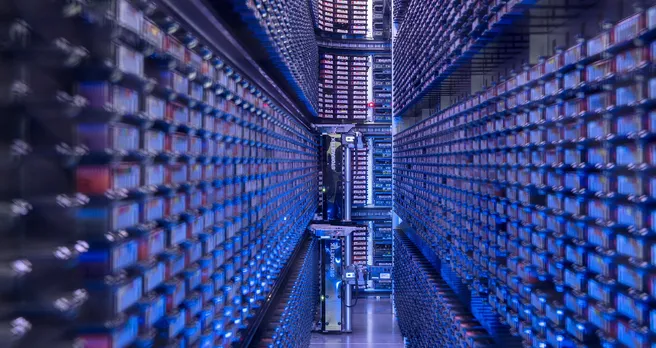The Nobel Committee announced last week that the 2024 Physics Prize has been awarded to John Hopfield and Geoffrey Hinton for machine learning (ML) and artificial neural networks. While computers cannot think as humans do, machines can now simulate such functions as memory and learning. The 2024 physics Nobel laureates have facilitated this shift using fundamental concepts and methods from physics.
In the TUM School of Natural Sciences, we asked our professors to reflect on the impact of machine learning and deep learning/artificial neural networks on their current research.
Machines identify, sift, calculate and make better use of scientific data
In research, we produce a lot of data, information that requires time and expert insights to be useful. The prize awarded to Hopfield and Hinton highlights how these methods can help sort and analyze the huge amounts of data produced in experimental and theoretical research.
“I’m convinced that by applying AI to some of the most demanding physics environments we can advance both AI and physics at the same time,” says Prof. Lukas Heinrich, TUM Chair of Data Science in Physics. At the announcement last week in Sweden, the Large Hadron Collider was an example of how the laureates’ works have contributed to scientific research since the 1980s, “It has deeply changed the way we do our work. While before, we were limited by our own imaginations in how to extract insights from the data at the Large Hadron Collider, we can now exploit AI to consider even the subtlest patterns that otherwise would be inaccessible,” Heinrich reports.
Prof. Helge Stein, TUM Professor of Digital Catalysis, agrees that the impact of the Physics Nobel Laureates reaches beyond the traditional physics boundary with positive consequences for chemistry, “While theoretical chemists have been using machine learning methods much earlier than some experimentalists, the impact on materials chemistry has been tremendous.” He remembers his first ML publications around 2013 when many critics exclaimed, “this is just a phase!”. The 2024 Nobel Prize validates the contribution of ML to advancing and accelerating the fields of natural sciences.
Prof. Patrick Rinke, TUM Chair of AI-based Materials Science, agrees that the impact of machine learning and deep learning has been huge: “No other development has had quite the same effects because machine learning can be and is used in all of physics and all of chemistry.” Rinke continues, “In every sub-discipline, machine learning has led to new insights, facilitated acceleration of data generation and understanding, and has enabled research that simply wasn't possible in this form before.” In his own research, ML has allowed Rinke to tackle a much wider range of scientific problems. “My previous expertise was in atomistic modeling. With machine learning, we can go beyond the atomic scale and address challenges with societal impact, like sustainable materials development (such as organic electronics).”
Nobel Prize press release
Finding patterns of information “They trained artificial neural networks using physics” October 08, 2024. https://www.nobelprize.org/prizes/physics/2024/press-release/
More information and links
- Prof. Lukas Heinrich presented „Wie KI die Quantenwelt entschlüsselt“ (in German) at the Deutsches Museum in this March 20, 2024 video. https://www.youtube.com/watch?v=kMWM87H6TGM.
- This close connection between physics and AI is the core reason behind the creation of the ORIGINS Cluster of Excellence, where a dedicated team explores these connections more deeply. https://www.origins-cluster.de/.
- Prof. Helge Stein introduces his research developing experimental and computer-aided methods for the accelerated discovery, characterization, and upscaling of new and improved materials in catalysis and for secondary batteries in this TUM “NewIn” video (in English). https://www.youtube.com/watch?v=Cj_cQiZB7AE.
- Go deeper into the research of Prof. Patrick Rinke's AI4MS research group at TUM https://www.ph.nat.tum.de/ai4ms/home/ and learn more about the Atomistic Modeling Center of the Munich Data Science Institute: https://www.mdsi.tum.de/en/amc/home/.
- Podcast: “Using Artificial Intelligence to Uncover Cosmic Secrets”: https://www.tum.de/en/news-and-events/all-news/press-releases/details/using-artificial-intelligence-to-uncover-cosmic-secrets (Podcast in German).
Press contact
